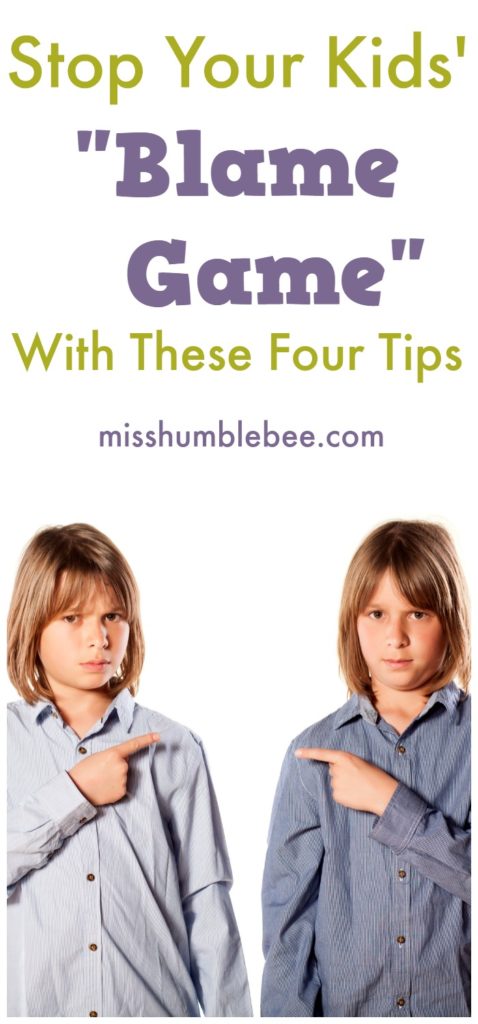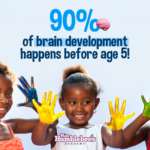Anyone with children over the age of five has probably heard some or all of the following phrases:
“It’s her fault!”
“But…”
“He did it first!”
“I couldn’t help it.”
Parents encounter many trying situations on a daily basis, but one of the most frustrating is the Blame Game. Kids seem to have a million excuses for why they’re not to blame… for anything… and it’s not only irritating; it’s a behavior that could lead to problems as they grow. A child who can’t take responsibility for her actions will grow into an adult who is unpleasant to be around at best and unemployable at worst.

So how do parents stop the Blame Game? There are several things that can help. Try these four tips.
Practice What You Preach
First of all, make sure your child isn’t learning the Blame Game from you. Kids are always paying attention to our words and actions, even when we think they’re not, so it’s important that we practice the behaviors we want them to learn.
If you find yourself complaining that you couldn’t mow the lawn because your neighbor stopped by and stayed too long, or you haven’t finished your big work project because your team members can’t get their acts together, stop! Even if your excuse is valid, a child won’t understand the difference and will only hear that your action (or lack of action) is a result of someone else’s behavior and therefore not your fault. If you need to vent, make sure your kids are out of earshot first.
Keep Calm
The greatest reason a child diverts blame is to avoid a negative consequence. If your child knows you’ll fly off the handle at the smallest infraction, he’ll do whatever he can to steer clear of the storm.
Try to keep your cool when confronting your child with their offense. This doesn’t mean you don’t levy a consequence if one is necessary, but it does mean you don’t overreact to every situation. It also means that an additional consequence is given when blame is placed, but that praise is offered when your child takes responsibility immediately.
The added bonus to keeping calm is that your child learns that you’re a safe person to come to when he needs to discuss something important to him.
Teach Cause and Effect
Young children are still in the process of learning that every action has a consequence, whether good or bad. Offering situations for your child to think through allows her to develop the skill of determining if an action (cause) will have a positive or negative outcome (effect).
For example, ask your child what she thinks will happen if you’re low on food and you don’t go grocery shopping. She may come up with outlandish outcomes at first, such as the whole family will starve to death by the next morning, but the more practice she gets and the older she gets, the better she’ll be able to determine realistic effects for each cause.
As she develops this skill, she’ll learn that her own behavior also leads to certain outcomes, making her less likely to play the Blame Game.
Be Consistent
This is the most important, and also most difficult, part of parenting. If you allow your child to get away with something half the time and not the other half, he will never know what to expect and will also never understand that playing the Blame Game is not okay.
Let your child know that you expect him to take responsibility for his own actions. Have clear and consistent consequences when he doesn’t take responsibility for something that is clearly a result of his own actions. Although consequences might vary from situation to situation, an additional consequence for placing blame should be something you’ve discussed with your child so that you’re both clear about what to expect.
Alternately, help your child understand that when he does take responsibility, good consequences follow. Although you may need to make this tangible in the beginning, the goal is to teach your child that someone who takes responsibility for his own actions is someone whom others learn to trust and respect.
It’s human nature to place blame, but with practice and consistency, you can teach your children the importance of stopping the Blame Game.










